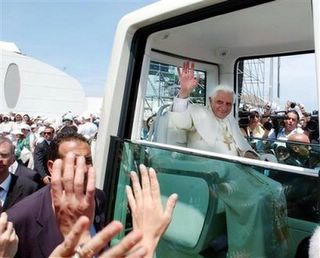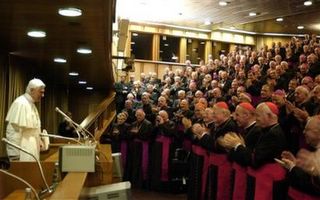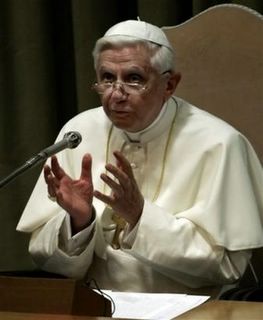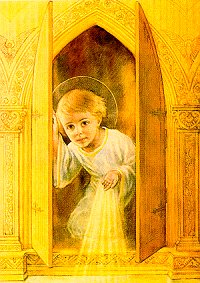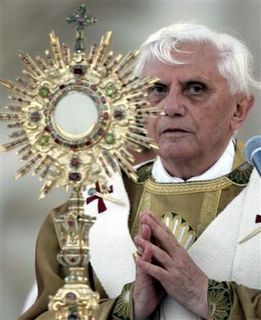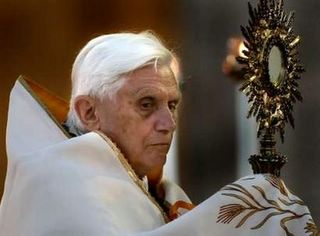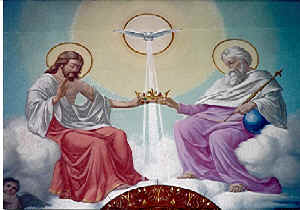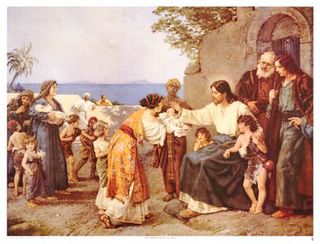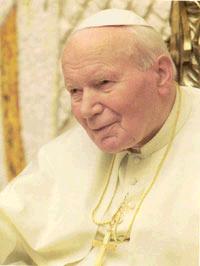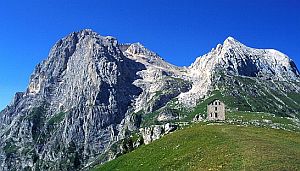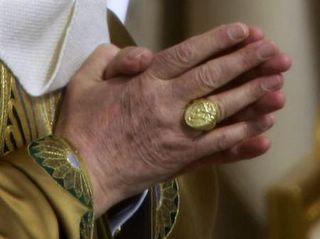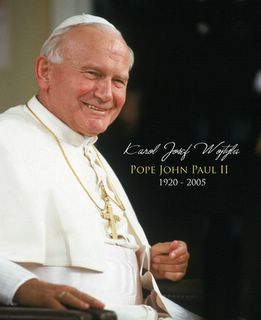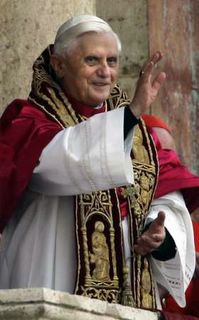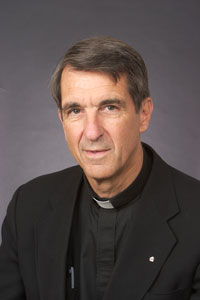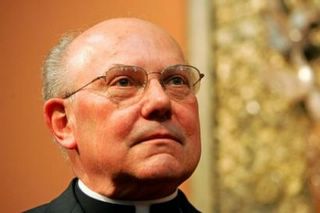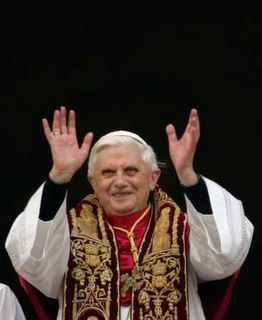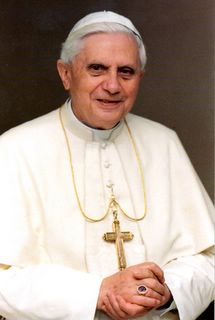The Holy Father Imparts His Apostolic Blessing
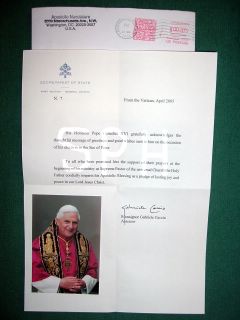
What a lovely gift I received from the Blessed Mother on the last day of May!
When I got home, I found a piece of mail that arrived today which made me quite excited seeing that it was from the Apostolic Nunciature in Washington D.C. It was a response to a letter of greeting that I sent on May 6, 2005 to the Holy Father, Pope Benedict XVI.
In my letter, I made a pledge of loyalty and obedience to the Holy Father as the Supreme Pontiff of the Holy Roman Catholic Church and Vicar of Christ and that I promised to support him together with the laity through prayer, penance and preaching, a movement which would be called St. Peter's Helpers. I asked him for his apostolic blessing upon this call and for his prayers.
Let me share with you his message via the Apostolic Nunciature:
His Holiness Pope Benedict XVI gratefully acknowledges the thoughtful message of greetings and good wishes sent to him on the occasion of his election to the See of Peter.The letter also included a beautiful photograph of the Holy Father which he signed Benedictus PP XVI, 19/IV/2005, with his official papal coat of arms on the back of the photo.
To all who have promised him the support of their prayers at the beginning of his ministry as Supreme Pastor of the universal Church the Holy Father cordially imparts his Apostolic Blessing as a pledge of lasting joy and peace in our Lord Jesus Christ.
Dearest brothers and sisters in the Catholic blogworld, I want to assure you that the Pope's apostolic blessing extends to all of you who have pledged your support by way of St. Peter's Helpers weblog.
May God bless you all and may St. Peter's Helpers be a source of great joy and sanctity as we journey with Pope Benedict to meet our Lord and Savior, Jesus Christ.


